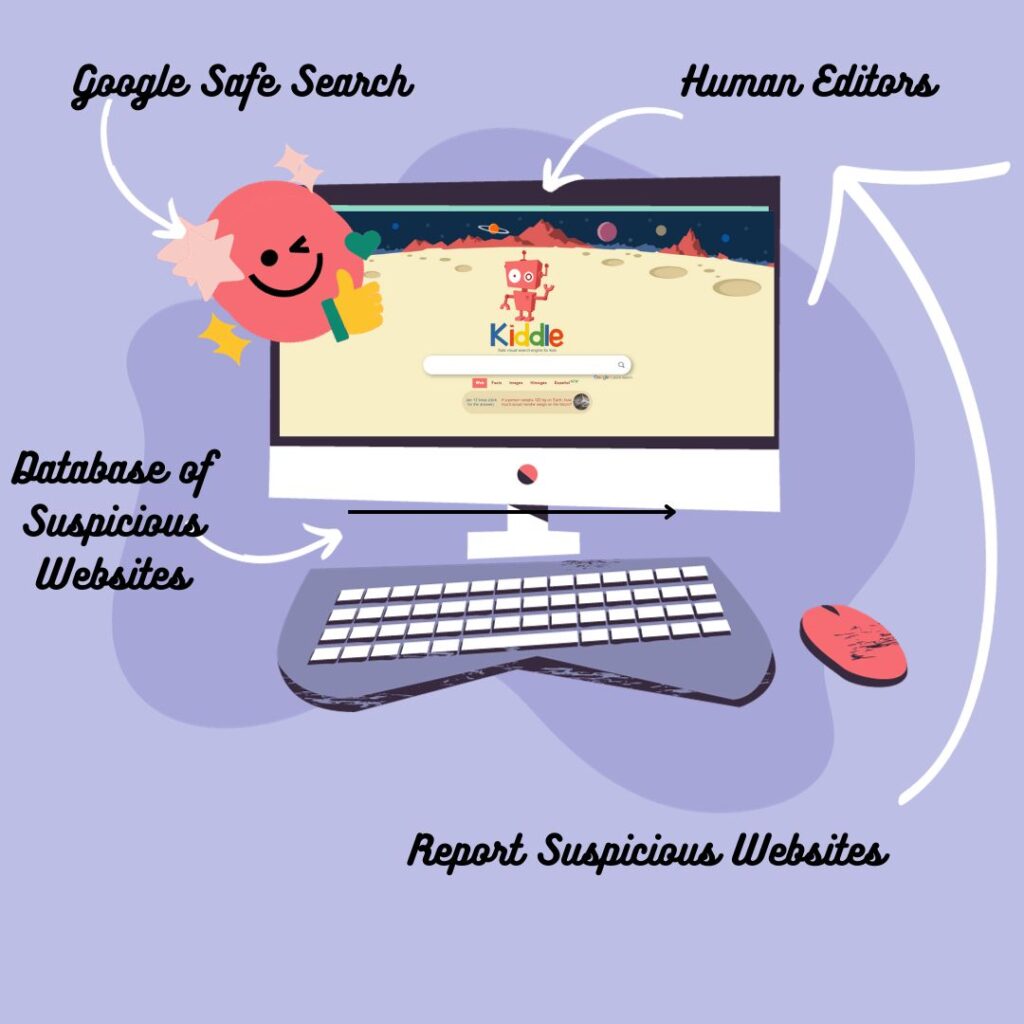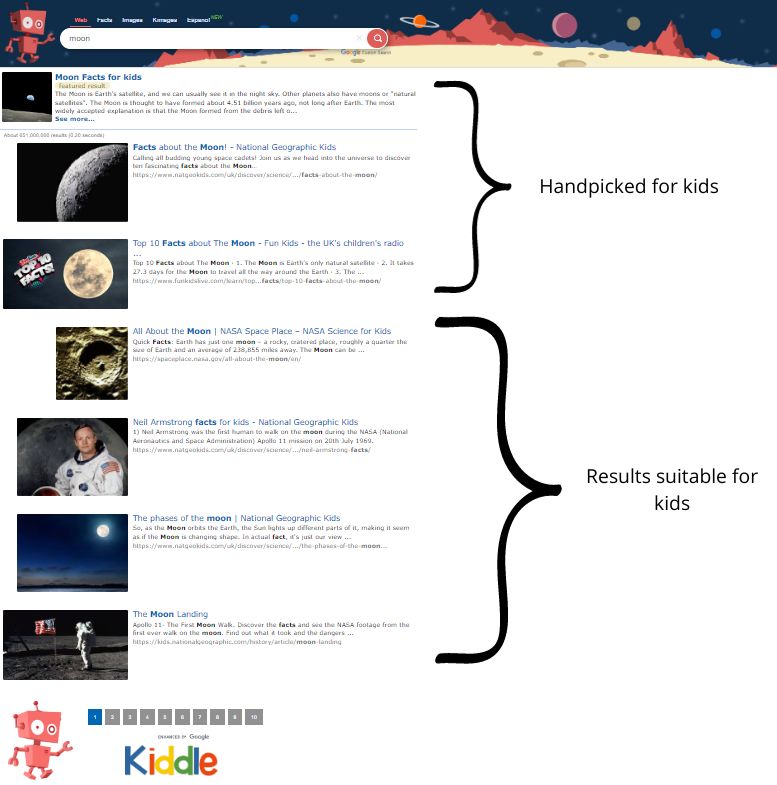The Internet is a vast ocean of information. Finding a safe harbor for children to explore, learn, and satisfy their curiosity can be challenging. This is where Kiddle comes into the picture, offering a child-friendly interface and filtered content to ensure a safe online experience for the younger audience.
What is Kiddle?
Kiddle is a visual search engine, Android app, and online encyclopedia explicitly designed for children. It is characterized by its kid-friendly, colorful interface and large, readable fonts, which make it appealing and easy to use for young users.
The primary feature of Kiddle is its strict filtering system that ensures the search results are safe, non-offensive, and age-appropriate for children. This is achieved by filtering out adult content and prioritizing educational and kid-friendly websites in the search results.
Kiddle aims to provide a safe online environment for kids to explore, learn, and satisfy their curiosity. It is a popular choice among parents and educators seeking a secure and educational internet experience for children.
Contrary to some beliefs and articles, Kiddle is not affiliated with Google LLC.
How does Kiddle work?
Google Programmable Search Engine powers Kiddle. It employs several mechanisms to ensure a safe and appropriate browsing experience for children.
Kiddle uses a modified version of Google SafeSearch, an automated filter that excludes explicit and adult content from search results. This forms the basis of Kiddle’s ability to provide child-appropriate content.
Unlike standard search engines that rely solely on algorithms, Kiddle employs human editors to review search queries and results. These editors ensure the top results are safe, specifically beneficial, and relevant to children.
Kiddle maintains a database of keywords and websites deemed inappropriate for children. Suppose a search query includes these keywords or attempts to access these sites. In that case, Kiddle will block the results and instead display a message encouraging the user to try a different search term.

It also allows users to report suspicious or questionable search results. These results are then reviewed and blocked if necessary.
Kiddle SERP
Kiddle tries to push children-friendly results to the top of the SERP.
When a user enters a keyword in the search toolbar, the first three results are pages written specifically for children, handpicked and checked by Kiddle editors for suitability. These are followed by results that are simple enough to be understood by older children, with more complex pages listed further down.

A relevant image accompanies every result.
When was Kiddle made, and who made it?
Kiddle.co domain was registered in 2014. The search engine was launched in 2015. Specific details about its founders or origin story have yet to be widely publicized.
Kpedia
Kpedia is an online encyclopedia powered by MediaWiki. It is accessible from the Kiddle homepage and lists over 700,000 articles. Articles are based on selected content and facts from Wikipedia, rewritten for children.
Privacy and tracking
Kiddle strongly emphasizes privacy and user safety, especially considering its target audience of children. It does not collect any personal information from its users, and it deletes logs of search queries every 24 hours.
Kiddle controversy
In 2016, Kiddle sparked controversy for its approach to filtering content related to LGBT topics. Initially, Kiddle blocked search terms such as “lesbian,” “gay,” “bisexual,” “transgender,” “queer,” and “LGBT,” resulting in no search results.
This action raised concerns about the exclusion and stigmatization of the LGBT community, particularly given the significant number of LGBT young people who seek online resources and support. Critics argued that Kiddle lacked an educational opportunity by not addressing these topics age-appropriately.
In response to negative media attention and public outcry, Kiddle revised its policy. The search engine began allowing searches for these previously blocked terms.
Is Kiddle a safe and reliable source?
Kiddle is a safe source of information for kids. However, because it filters inappropriate content, its reliability can be questioned for several reasons.
Information available to Kiddle users is limited compared to other search engines. Filtering can lead to excluding specific topics, as seen in the controversy over blocking LGBT-related content. Kiddle can potentially be biased toward particular topics.
Interesting facts about Kiddle
- .co domain was chosen to represent „children only” policy
- after LGBT controversy Kiddle even became meme for short time
- Kiddle is available in english and spanish language
Other search engines for kids
Besides Kiddle, several search engines are designed specifically for kids, offering safe and educational content. Here are some notable ones:
KidzSearch: offers additional features like educational games, learning sites, and videos.
KidRex: more suitable for kids under the age of 5.
KidTopia: aimed at elementary school students, Kidtopia uses Google Custom search and provides results from teacher-recommended websites.
SafeSearchKids

